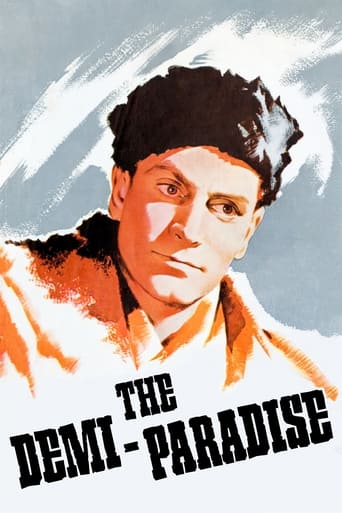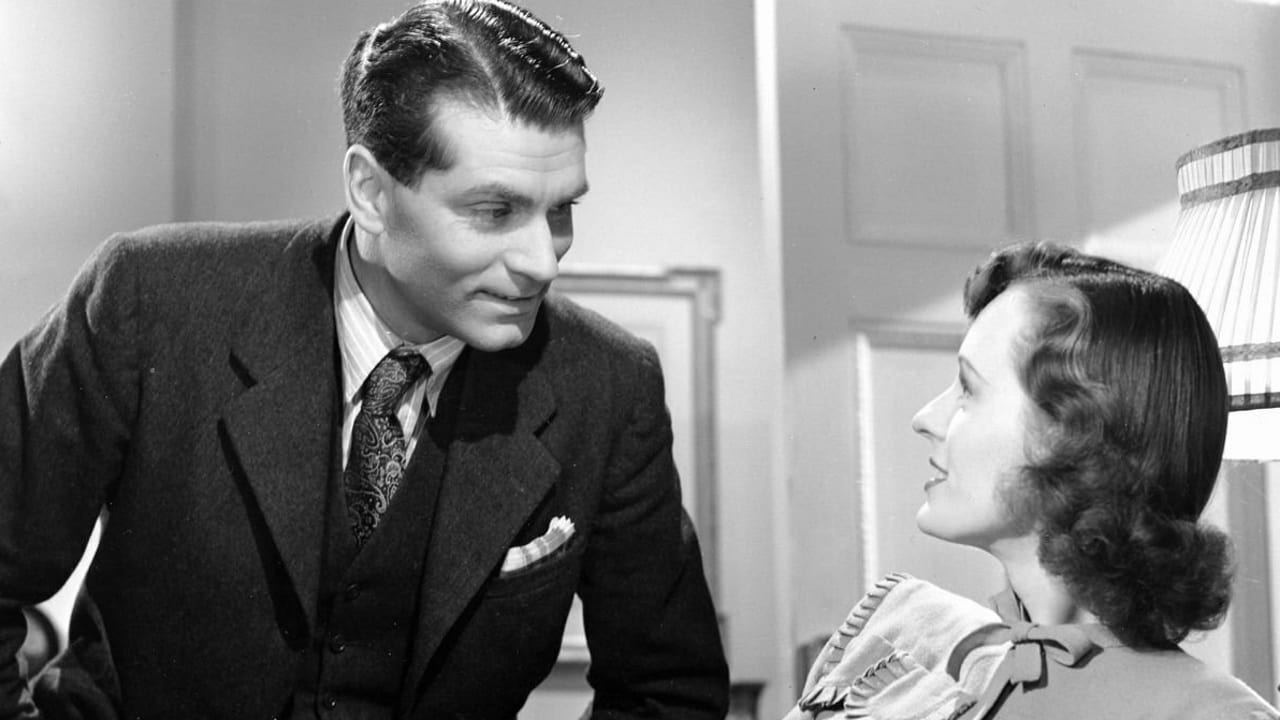writers_reign
It's difficult today to view this film as anything more than a curio and we have to assume that Talking Pictures - who actually screened it on television - had been negotiating/planning for several months or they wouldn't have screened something promoting harmony between Russia and the UK at the very moment that relations between the two countries are strained to say the least. Puffin Asquith never made a really bsd film throughout his long and distinguished career but he had his work cut out with this one. Saddled with the highly overrated Olivier Puffin was lucky inasmuch as the producers wheeled out some top-drawer support and a luminous leading lady in the shape of Penelope Dudley Ward, soon to become Mrs. Carol Reed and, alas, retire from the screen. Far too good for Olivier she shows how it should be done.
GusF
A satire of the English way of life in the first half of the 20th Century from the perspective of a Soviet engineer, this is a very enjoyable romantic comedy film. However, I have to admit that I enjoyed the light comedy of the first half of the film more than the rather openly propagandistic second half concerning the Second World War. I don't think that the two halves are married together as well as they could be. Given the time that the film was made, the use of propaganda is not surprising, let alone objectionable, but I preferred two other Laurence Olivier films which took a comparatively more subtle approach on that score: "That Hamilton Woman" and "Henry V" (1944). The film is well directed by Anthony Asquith and well written, particularly in the first hour, by the Russian-born Anatole de Grunwald, who likely used his own early experiences of English life as inspiration for some of the material. The film stars my absolute favourite actor Laurence Olivier in a wonderful performance as Ivan Dimitrevitch Kouznetsoff from Ninji-Petrovsk - how do you do? Very well, thank you. His Russian accent is excellent and he does a great job in the early parts of conveying Ivan's struggles with the English language. Olivier had a flair for accents but he had a tendency of going a bit over the top when he used them in later films such as "The Boys from Brazil" and "Dracula" (1979). However, that was not the case here. Ivan comes to England with more than a few ill-informed prejudices. He believes that the English are degenerate capitalists who exploit the workers and have no interest in world affairs outside of their scepter'd isle. His conversation is very blunt and matter of fact and he has little understanding of English social niceties, meaning that he is occasionally rude without meaning to be. He interprets the English tendency to not say exactly what they mean as being two-faced and does not understand their sense of humour. I say "English" in all these cases as the film is a very specific examination of English life as opposed to British life. I had a bit of a problem with this during the World War II scenes in the film's more serious second half.Over the course of the film, Ivan gradually falls in love with the socialite Ann Tisdall. The fact that her father and grandfather are involved in the shipbuilding company charged with making his new revolutionary propeller means that he has plenty of opportunities to spend time with her. Ann is played very well by the enchanting Penelope Dudley-Ward, who has great chemistry with Olivier. This was unfortunately one of Dudley-Ward's last films as she retired from acting in 1944 after a mere eleven film appearances. Ivan initially believes that Ann is a very nice person, which he tells her repeatedly, but he comes to consider her flighty and hypocritical when she backs out of a previous engagement to go to the theatre. In this sense, he was being superficial as he failed to realise that everyone has many sides to their character. He eventually comes to the conclusion that he has misjudged not only Ann but the English people as a whole. This is brought home to him in the second half when Britain is being bombed and facing German invasion. Like everyone else, Ann does her bit and becomes a WREN, leading Ivan to once again describe her as a very nice person.The film also stars Olivier's frequent collaborator, the always superb Felix Aylmer, as Ann's grandfather Mr. Runalow, Britain's foremost expert in naval engineering and perhaps the most sensible and level- headed character in the film. Edie Martin is a laugh riot as Ann's aunt Winnie, who is extremely suspicious of Ivan. When she is told that he is showing something to Mr. Tisdall, she immediately asks if it ticks! There are also nice appearances in roles of varying size from Margaret Rutherford, Joyce Grenfell, Guy Middleton, Jack Watling, John Laurie, Miles Malleson, Wilfrid Hyde-White and an uncredited 18-year-old George Cole. The next year, Olivier cast Aylmer, Laurie and Cole in "Henry V", incidentally.Aside from its entertainment value, the film is also of historical interest as it places a great deal of emphasis on the exaggerated strength of Anglo-Soviet relations. It is said more than once that the two countries have a great deal to learn from each other. In a very well written and delivered speech, Ivan hopes that the British Empire and the Soviet Union will be able to crush all enemies of freedom in the years after the war and then laugh at them as he believes that you must be free in order to laugh. De Grunwald clearly wanted his two countries to work together for the betterment of mankind. Needless to say, history had other ideas. It is hinted that Ivan and Ann will pursue a proper relationship after the war but real life might have stood in their way. The script certainly views the Soviet Union through rose-tinted glasses but this is understandable under the circumstances.Overall, this is a very entertaining film but it is not as strong as it would have been if the lighter tone had been maintained throughout. However, I am very glad that the film was made as the idea would have few takers in either the film community or the general public in just a few short years.
mbrachman
This delightful romantic comedy has a situation similar to "Ninotchka" from several years earlier, but with the genders reversed: Loyal but somewhat naive Soviet apparatchik visits a Western capitalist country on serious business, is squired through the strange ways of his/her host nation by a light-hearted but likable native toward whom he/she develops romantic feelings, and alters his/her views on Soviet/West differences. Garbo and Douglas were incomparable in "Ninotchka," but Olivier, in an offbeat role for him, and Dudley Ward hold their own in this comic exploration of people's preconceived ideas about one another (the Russian assumes all English businessmen are "exploiters," the English boarders at a rooming house won't eat at the table with "one of them (a Russian communist)." Definitely worth seeing.
vasa
Good example of the type of movies made in England during the war, to keep spirits up. The Brits never seem to engage in gung-ho war stuff: which makes for more pleasant viewing.While nowhere near the league of, say, "A Canterbury Tale", The Demi-Paradise has enough realism (of the British character) to while away a pleasant hour and a half.


 AD
AD


